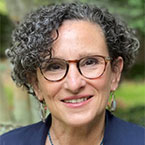By: Carol Weitzman, MD, FAAP & Michelle Curtin, DO, FAAP
Healthy mind, healthy body: the two go hand in hand. That's why it's so important to identify and treat
mental, emotional and behavioral health problems early in a child's life. It's also why regular screenings for them has become a top priority for doctors who work with kids. Finding these conditions as soon as possible supports effective treatment—the kind that helps kids thrive in school, relationships and activities that prepare them for adult life.
The American Academy of Pediatrics (AAP) urges parents and health care clinicians to work together to promote
resilience and identify mental, emotional and behavioral health warning signs in children and teens. This advice tracks with growing concerns about the well-being of kids across the U.S.
How are our children doing?
In late 2021, the AAP joined with other childhood health organizations to declare
a national emergency in youth mental health. While there have been some
signs of improvement since then, millions of U.S. children continue to struggle.
An estimated 1 in 5 children—including kids as young as 2 years old—have mental, emotional or behavioral difficulties at any given time.
By age 16, nearly 40% of all U.S. teens may have a mental, emotional or behavioral diagnosis.
Common diagnoses in kids and teens include
anxiety,
depression,
ADHD and disruptive behavioral issues such as oppositional defiant disorder (ODD).
Suicide and
self-harm continue to threaten and even end young lives.
Do some kids face greater mental health risks than others?
Many different factors can harm the mental, emotional and behavioral health of kids and teens.
Trauma—whether it's sudden or constant – can also worsen a child's mental health. Witnessing , living through a , being separated from loved ones or enduring physical, sexual or emotional are serious examples of harmful trauma.
Children who deal with
racism or
bullying are also more likely to develop difficulties. Kids who identify as
LGBTQ+ have higher
risks for anxiety, depression and suicide than their straight peers. In addition, children with are at higher risk for mental, emotional and behavioral health problems, including suicide.
How mental health screening can change the story for kids
Open family conversations, paired with regular, frequent standardized screenings during health care visits, can identify mental, emotional or behavioral concerns.
Finding these issues early can make a huge difference for your child.
Even in toddlers and preschoolers, behavior challenges that seem typical at first may actually be a sign of a problem that needs attention. Screening helps identify these concerns early, before they persist or get worse. The sooner your child receives care, the greater their ability to develop skills that will help them throughout life.
AAP experts recommend that family mental health conversations start at a baby's earliest checkups. This includes mental, behavioral and emotional health screenings at age 6 months, and again at the 12-, 24- and 36-month well-child visits. These can be coordinated with other screens such as developmental and
autism screenings.
Why so soon? One reason is that parent-child
bonding matters for little ones. Many parents (including partners and adoptive parents) struggle with
post-partum depression (PPD). Effective PPD care can restore a parent's energy and confidence. This makes it easier for them to interact with their baby in ways that promote healthy mental development, such as
cuddling, cooing and chatting with their child.
Your child's regular
checkups will give their pediatrician the chance to screen for mental, emotional or behavioral issues. Screenings should be done close to your child's 1st, 2nd and 3rd birthday. After your child's 3rd birthday, these screenings should take place yearly until your child grows to adulthood.
Using age-appropriate tools, the doctor can check for signs of difficulties you might already have noticed. Talking about what happens at home or school helps you build a strong partnership with your pediatrician—one that benefits your child's mental health even if they never need care for a specific condition.
How a team approach protects and supports your child
As kids approach school age, regular mental health screenings usually become part of annual checkups. (These
helpful articles map out what to expect at yearly checkups.)
But don't wait until your child's next checkup to raise concerns about mental, emotional or behavioral issues. A lot can change between medical visits – and your child's doctor relies on you to describe any
symptoms that concern you.
Recommended mental, emotional and behavioral health screenings: AAP policy explained
The AAP supports ongoing mental, emotional and behavioral health screening starting at your child's 6-month checkup and at each annual checkup after that. In addition, the AAP recommends condition-specific screening based on age and risk:
Maternal depression: Screening within a baby's first month, and continuing until 6 months of age, to identify postpartum depression in caregivers.
Anxiety: Annual screening starting at age 8 years.
Depression: Annual screening by age 12 years.
-
Suicide risk: Screening by age 12 years.
Closing the dangerous care gap in accessing mental health services
In mental health diagnoses, there is typically
a 2-to-4-year window between a child's first symptoms and when a full disorder develops. But sadly, most U.S. children and teens don't receive care in a timely way after symptoms first appear.
Closing this gap means getting treatment for your child as early as possible. This opens the door for learning and healing, fueled by your child's developing brain (which keeps growing
until their mid-20s). Coping and
self-care skills developed early will help your child live with—but not feel limited by—their mental health diagnosis.
Bringing primary care together with mental health care
New strategies are helping pediatricians link children and families with mental, emotional and behavioral health resources. Some pediatric and family medicine practices have mental health providers on staff, ready to care for young patients. Team-based treatment is quickly becoming the gold standard for supporting children and teens.
Cultural understanding through physician and staff training is another key goal in mental health care. Pediatricians and care teams want to know more about the traditions, faith practices and values that affect a family's health care choices. They also need to understand conditions or barriers that might affect a child's sense of security and self-worth.
Family health histories can be a natural starting point for conversations about culture, home practices and more.
Remember
Mental health is essential to your child's whole-person health, now and throughout life. Pediatricians and families can work together to build resilience and promote wellness in children and teens at every visit. In addition, careful screening and close partnerships with your child's doctor can identify mental, emotional and behavioral concerns early. Assessing mental, behavioral and emotional issues regularly and addressing findings promptly helps kids develop their own coping and self-care routines.
Pediatricians rely on parents to share what's happening in a child's life, especially when kids are too young to explain on their own. Don't wait for their next checkup to discuss possible mental, emotional or behavioral health symptoms. You can count on your pediatrician to help you find resources, care options and much-needed social support for your child and family, all without blame or judgment.
More information
About Dr. Weitzman
 Carol Weitzman, MD, FAAP, is a Developmental Behavioral Pediatrician and the Co-Director of the Autism Spectrum Center at Boston Children's Hospital and Director of the CT Center for Developmental Pediatrics. She is an Associate Professor at Harvard Medical School and Professor Emeritus of Pediatrics at the Yale School of Medicine. While at Yale, Dr. Weitzman was the Director of Developmental-Behavioral Pediatrics (DBP) and oversaw the fellowship training in DBP. Nationally, she is a past president of the Society for Developmental Behavioral Pediatrics, (SDBP), and a past chair of the American Academy of Pediatrics (AAP) Section of Developmental Behavioral Pediatrics. Dr. Weitzman is the author of the AAP Clinical Report "Promoting Optimal Development: Screening for Behavioral and Emotional Problems," and the Health Care for Youth With Neurodevelopmental Disabilities: A Consensus Statement. She is a member of the American Board of Pediatrics Sub-Board. Carol Weitzman, MD, FAAP, is a Developmental Behavioral Pediatrician and the Co-Director of the Autism Spectrum Center at Boston Children's Hospital and Director of the CT Center for Developmental Pediatrics. She is an Associate Professor at Harvard Medical School and Professor Emeritus of Pediatrics at the Yale School of Medicine. While at Yale, Dr. Weitzman was the Director of Developmental-Behavioral Pediatrics (DBP) and oversaw the fellowship training in DBP. Nationally, she is a past president of the Society for Developmental Behavioral Pediatrics, (SDBP), and a past chair of the American Academy of Pediatrics (AAP) Section of Developmental Behavioral Pediatrics. Dr. Weitzman is the author of the AAP Clinical Report "Promoting Optimal Development: Screening for Behavioral and Emotional Problems," and the Health Care for Youth With Neurodevelopmental Disabilities: A Consensus Statement. She is a member of the American Board of Pediatrics Sub-Board. |
About Dr. Curtin
 Michelle Curtin, DO, FAAP, is a Developmental-Behavioral Pediatrician (DBP) and Associate Professor of Pediatrics at Wake Forest University School of Medicine. She is an author for the AAP clinical report "Promoting Optimal Development: Screening for Mental Health, Emotional, and Behavioral Problems." She was the inaugural liaison to the section of DBP from the section of pediatric trainees and 2025 Rising Star co-awardee from the North Carolina chapter of the American Academy of Pediatrics. At Wake Forest she serves as the educational lead and medical services division head of the section of DBP, working with residents, fellows, and colleagues to expand care access and expertise for children with developmental-behavioral disorders. Michelle Curtin, DO, FAAP, is a Developmental-Behavioral Pediatrician (DBP) and Associate Professor of Pediatrics at Wake Forest University School of Medicine. She is an author for the AAP clinical report "Promoting Optimal Development: Screening for Mental Health, Emotional, and Behavioral Problems." She was the inaugural liaison to the section of DBP from the section of pediatric trainees and 2025 Rising Star co-awardee from the North Carolina chapter of the American Academy of Pediatrics. At Wake Forest she serves as the educational lead and medical services division head of the section of DBP, working with residents, fellows, and colleagues to expand care access and expertise for children with developmental-behavioral disorders.
|